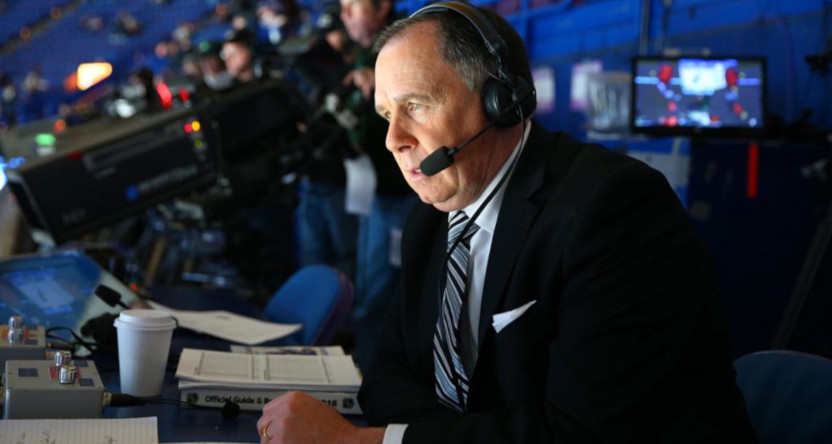After controversially deciding not to renew the contract of longtime play-by-play voice John Kelly, instead opting to move forward with a simulcast team that will call games for both television and radio audiences, St. Louis Blues CEO Chris Zimmerman is defending the decision as a “strategic realignment” rather than a cost-cutting exercise.
According to a report by Matthew DeFranks in the St. Louis Post-Dispatch, Zimmerman says he “definitely wouldn’t characterize [Kelly’s ouster] as a cost-cutting move,” though it gave all the appearances of one. “Are there some costs to be saved by not having two separate productions?” Zimmerman asked rhetorically. “Sure, but when you look at the scope of our business, what we’re investing in, how we’re investing in the business, how we invest in players, it’s just not the driver. … We’re not going to save our way to success here. We’re going to win in a new media world based on how good the product is, how engaging and, oh yes, of course, a big part will also always be about the quality of the team and how entertaining they are.”
The Blues air local broadcasts on FanDuel Sports Network Midwest, part of Main Street Sports Group’s portfolio of regional sports channels. The group recently hired former ESPN executive Norby Williamson to head production. Shortly after his move to Main Street in January, Williamson explained his executive team’s strategy to retool production.
“The goal here is to be able to position the company to take advantage of technology, reinvent how we produce the games,” Williamson said in March. Part of that approach appears to be streamlining the announcement teams to call games for both television and radio simultaneously.
“[Williamson’s team] brought a lot of fresh ideas,” Zimmerman told the Post-Dispatch. “Their entering the picture and wanting to bring a little bit different feel to the production also certainly has played a role.”
Fans were rightfully upset at the Blues’ announcement last week. Calling games for television and radio are two fundamentally different ventures. One is a visual medium, while the other is audio.
As much as the Blues’ CEO might want to spin this one as a fresh approach on broadcast production, it’s clear that a move like this is only done for one reason: to save money.
To be clear, the crime here isn’t that the Blues are trying to save a buck. Most fans can acknowledge that the regional sports network business is facing challenging economics, and budget cuts can be expected. The crime is that the Blues are trying to portray this as if it’s a good move for fans.
One look at how Blues loyalists reacted to this news on social media last week makes it clear that very few fans agree with the company line here. And why would they? No one wants their television broadcast to sound like a radio broadcast and vice versa. Unfortunately, that’s what Blues fans will be stuck with from here on out.
